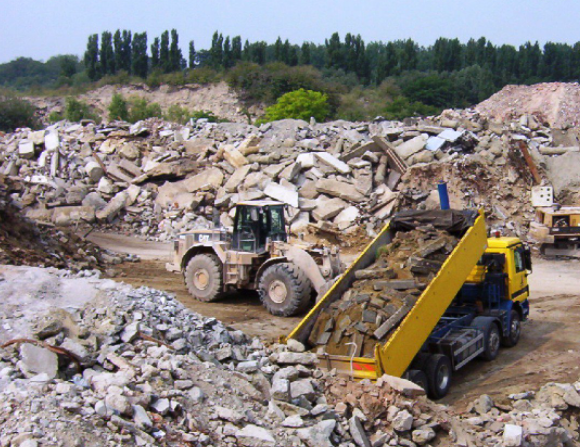Managing construction waste an industry imperative
The construction industry is a key player in helping South Africa achieve net zero gas emissions by 2050. But while green building design and the of use sustainable materials are integral to achieving this objective, the issue of construction waste must not be overlooked.
Waste is an inevitable by-product of any construction project and if not managed effectively, could seriously hamper South Africa’s ability to conserve our natural resources, says Databuild CEO Morag Evans.
Globally, the construction industry generates an enormous amount of waste each year and according to Transparency Market Research, it could be as much as 2.2 billion tons by 2025. In South Africa, a report by the Council for Scientific and Industrial Research reveals that our construction industry is responsible for around five to eight million tons of construction and demolition waste each year. And with 90 per cent of all the general waste produced in South Africa going to landfills, the country is rapidly running out of space to dispose of its waste.
While it is impossible for a construction site not to produce any waste during its operations, Evans says construction companies need to closely examine their construction practices and identify areas where they can reduce the amount of materials discarded during a project.
“The good news is that the majority of excess, damaged or scrap building materials can be recycled or repurposed and thus diverted from landfills.
“For example, coarse and fine aggregate such as new concrete, mortar and floor tiles can be produced from unused bricks and stones or waste concrete, while damaged wood can be used to make paper or recyclable slab. Additionally, dirt and muck are ideal materials for laying foundations, and metals such as steel can be melted down and reprocessed.”
Inaccurate estimates in materials orders are another major contributor to construction waste, Evans continues. “If these excess materials are in good condition, however, construction companies could consider selling them or reusing them in another project.”
A proactive approach
Of course, the management of construction waste is most effective when it is done proactively. This entails the development of a comprehensive waste management plan early in the design phase of the project which clearly indicates which materials can be recycled, reused or resold. In this way project waste becomes an integral part of materials management from the outset.
Communication with project stakeholders should also form a key component of the plan, Evans adds. “Requirements and expectations should be clearly formulated and regular discussions held with the project team to ensure they are fully informed of the plan requirements and deliverables for the duration of the project.”
Evans urges all construction role players to embrace a culture of eco-friendly waste management practices as a matter of priority.
“Companies that demonstrate good waste management practices will not only achieve considerable savings over the long term, but also enjoy an enhanced brand reputation that will ultimately bring in new clients. After all, who wouldn’t want to work with a company that is serious about keeping our environment healthy and protecting our planet?”


